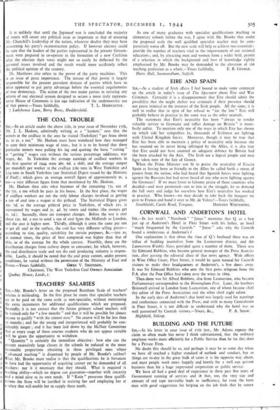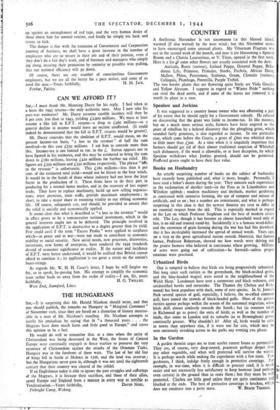BUILDING AND THE FUTURE
Snt,—In his letter in your issue of 17th inst., Mr. Adams repeats the claim so often made but never I think substantiated, that the ordinary employee works more efficiently for a Public Service than he (or she) does for a Private Firm.
No doubt this should be so, and perhaps it may be so some day when we have all reached a higher standard of outlook and conduct, but as things are to-day in the great bulk of cases it is the opposite way about, and most people work more happily and keenly for a well run private business than for a huge impersonal corporation or public service.
We have all had a good deal of experience in these past few years of Government running of services and in that, too, the very size and- amount' of red tape inevitably leads to inefficiency, for even the keen man with good suggestions for helping on the job finds that he comes
up against an entanglement of red tape, and the very human desire of those above him for normal routine, and finally he simply sits back and ceases to kick.
The danger is that with the extension of Government and Corporation running of business, we shall have a great increase in the number of employees who are so secure in their job and of their pension, even if they don't do a fair day's work, and of foremen and managers who simply jog along, securing their promotion by seniority or possibly wire pulling, that our national efficiency will go down.
Of course, there are any number of conscientious Government employees, but we are all the better for a pace maker, and some of us



























 Previous page
Previous page